Michaël Brun on the art of global collaboration: exclusive cover shoot and interview
Michaël Brun X FAULT Magazine
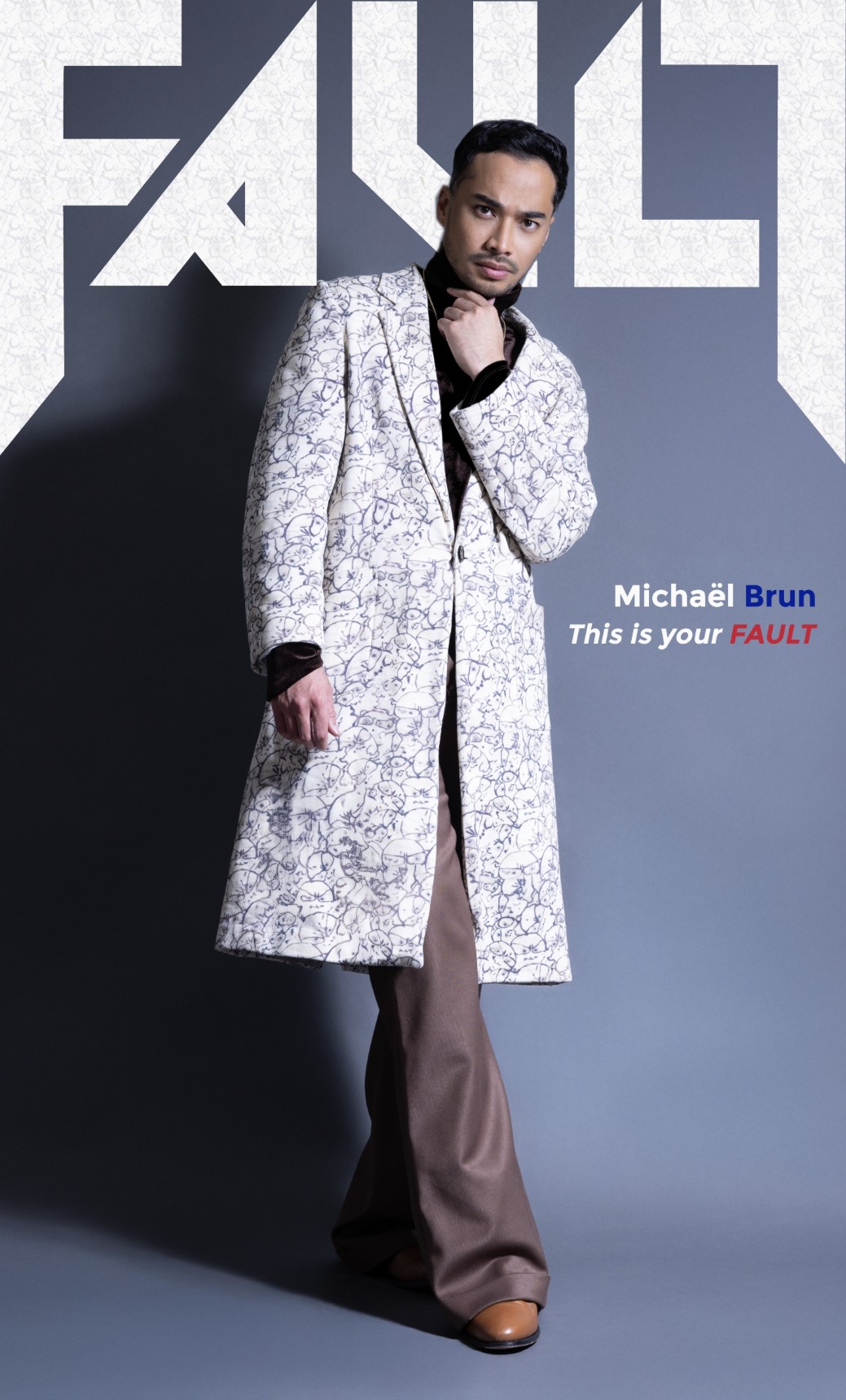
Brown velvet turtleneck, brown trousers: Wàngda
Camel and black Chelsea boots: Que Shebley
Photography: Udo Spreitzenbarth
Styling: Ty-Ron Mayes
Grooming: Ty-Ron Mayes
Words: Fabio Magnocavallo
Special Thanks: Twelfth House Publicity
Michaël Brun has long stood at the crossroads of global music, blending cultures, rhythms, and voices into a sound that defies borders.
A Haitian-born producer with an ear for both underground energy and mainstream appeal, Michaël Brun has mastered the power of collaboration, seamlessly connecting artists from both sides of the Atlantic. Whether working with Afrobeat giants (Davido, Adekunle Gold), Latin hitmakers (Becky G, J Balvin), or chart-topping American talents (John Legend, Alicia Keys), he creates vibrant musical bridges that honour diversity and unity.
Now, his groundbreaking BAYO event, which originally began in 2015 as a joyful mobile block party in Haiti, has since grown into a full-fledged annual cultural movement. A high-octane celebration of Caribbean, African, and diasporic music, BAYO has electrified cities across the US and the Caribbean. And this year, on June 28, it hits its biggest milestone yet: a takeover of the iconic Barclays Center in New York, where an arena of 19,000 people will be in attendance. More than just a concert, it’s a historic moment and a global stage for Brun’s mission to unify the world through rhythm, joy, and unapologetic celebration.
In an exclusive interview with FAULT, Michaël Brun opens up about the upcoming event, the art of collaboration, his initial desire to be a paediatrician, and more.
FAULT: Your biggest BAYO event at the Barclays Center is around the corner. How are you feeling?
Michaël Brun: I’m feeling really excited. It’s been a dream of mine to one day do an arena. The fact that we’ve gotten to this point is genuinely hard to even grasp, to be honest. Even though I dreamt about it, I always felt like it was an unattainable kind of thing. We’re gonna do it, and it’s gonna be amazing. The team that we have working across everything is so good, and we’ve been friends since I was a kid. It feels like a celebration of Haitian culture, Caribbean culture, and everything that I’ve been working on in my career as an artist, the things that I care about, the things that would mean a lot to me, and just changing perspectives on the Caribbean and Haiti to the world. It’s really important.
I read the event started as a free block party in Haiti.
The very first version of the show was not even meant to be a show. It was really us having dinner. It was like a group of friends and I having dinner and wanting to make music and play music out and do something in the streets right outside the restaurant. That energy basically has followed through all these years of being able to create something in the moment, have anybody that’s in the area join in, and feel a part of it, and incorporate these different sounds and styles of music that I personally really love and that have inspired me. And so, yeah, I think in the early days, it wasn’t even a thing yet. It was just us enjoying the sounds and the community. And to now have it be at the stage where it’s very clearly a thing, I feel like it makes sense now in retrospect. That’s what we were doing that first day, but I would have never known that first day that it would have left with us.
Were you secretly manifesting it would be what it has since become? Or could you not look that far ahead?
I knew I wanted to go into an arena setting somehow because I DJ’d, and I had my career as an electronic artist for years. I didn’t think this was gonna be it. I feel like the core element that’s always been there and the thing that maybe has informed the way that I approach my career and my life is building community. So I think that it just happens to be in an arena this time, and it happens to fall in line with that dream I had separately. But more than anything, it’s like the family got bigger. The community got bigger. There are more people here now. It’s the same core, but it’s at this large scale. I think that will continue, even past this show. I think that’s what drives everybody towards it.
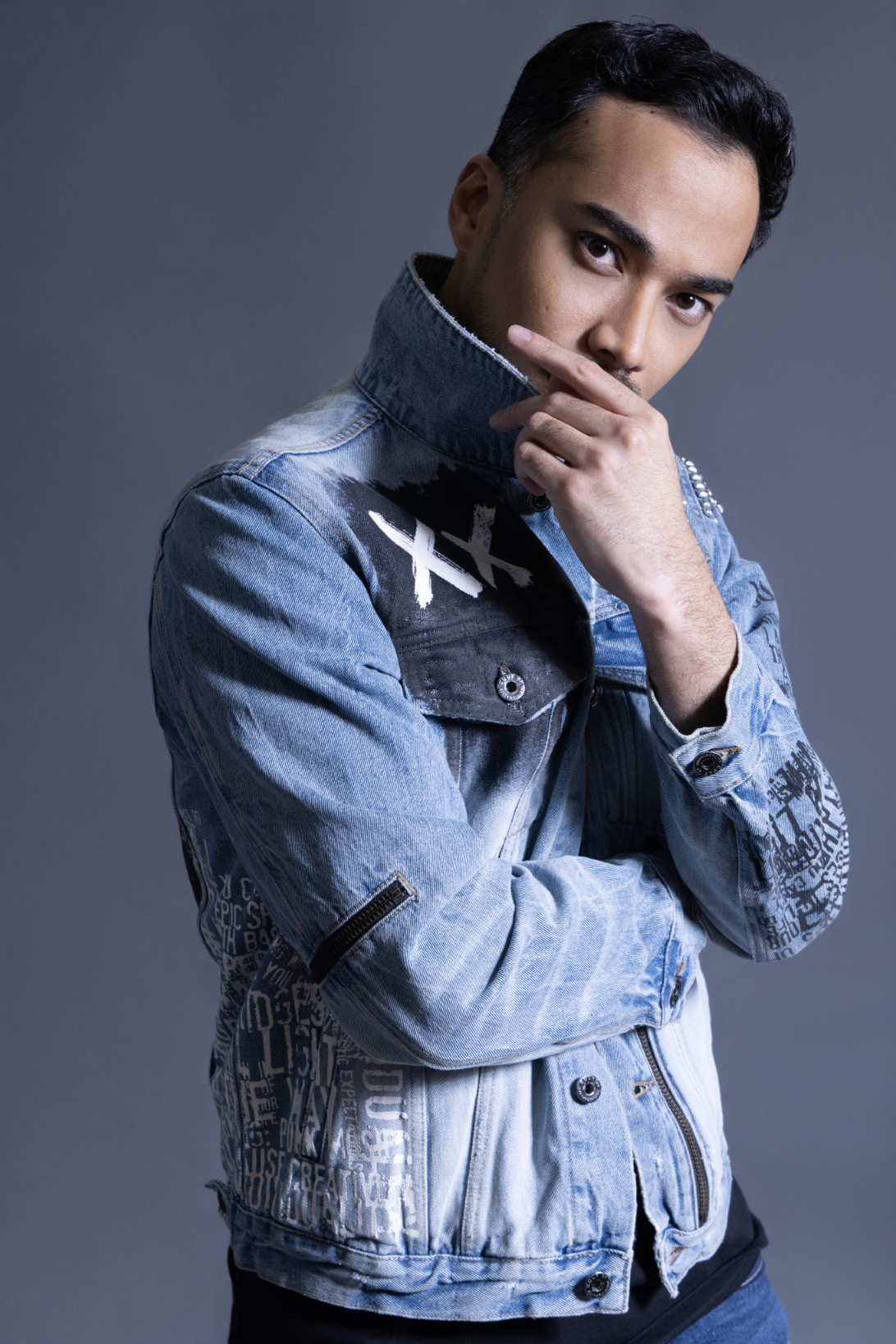
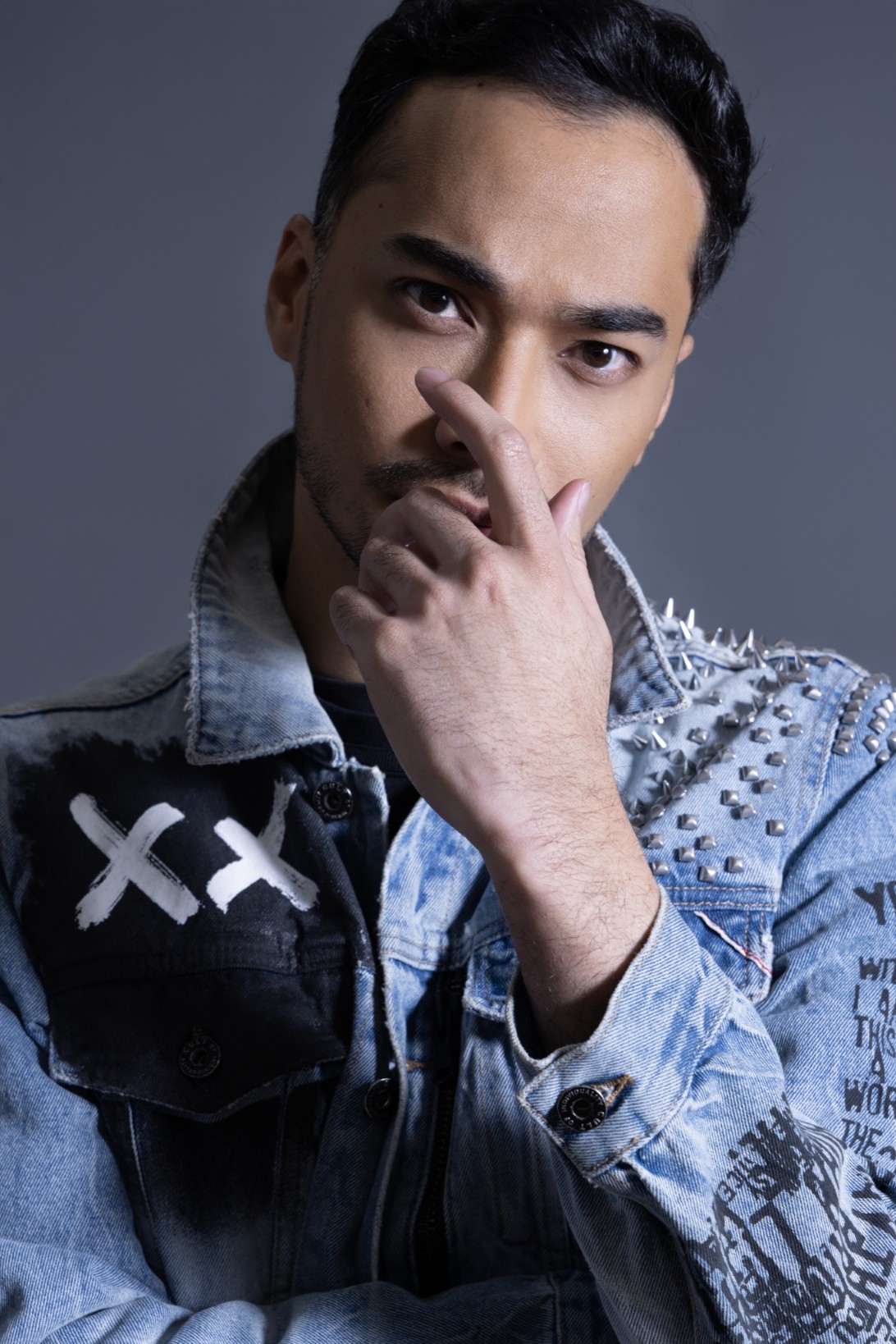
Jeans: CXL by Christian Lacroix
Your initial goal was to build a community. But, how have your goals changed since it’s gotten bigger over the years?
I think since day one, it’s been a celebration of the culture. Simultaneously, when we started doing the shows in the US, it’s been about creating this perspective. We want people in New York or somebody in Florida, or wherever we’ve done the shows around the world, who don’t necessarily understand or are familiar with Haitian or Caribbean culture, to learn more about it. I think it’s a doorway into that. And the way that I feel we tried to build this is as the most perfect day in Haiti condensed into a show. You might be walking in not knowing anything, but by the time you leave, you’re like, ‘Oh, man. I love this so much. I’m gonna fight for this. I’m gonna believe in this vision.’ That’s the feeling that I think has scaled it up over the years. That’s the true feeling of what I hope anybody who comes to one of the events walks away with.
Last year, you performed at Prospect Park in Brooklyn, an outdoor venue. This year, you’re hosting the event at Barclays Center, a huge arena. How will this year’s event differ?
When you do an arena, because it’s such a large space and it’s within this enclosure, it’s dark, right? So there’s a lot more theatricality in the way that you create the show. We’re building a brand new stage from scratch that’s really special and very meaningful to my life. And the visuals that we’re creating are really encapsulating all of these different moments that we’ve had throughout the years. It’s almost like a film on stage in a way, so I think that part of it is super different than when you do it in a park. It’s truly like a block party. I think it’s cool too because this is about to be our 10th year, so I feel like there’s a retrospective of the last nine years and thinking about those moments that really meant a lot and that have really stood out and helped to create what this is, and highlighting them and incorporating them into the next 10. It feels really special for this show.
You recently released singles ‘Touchdown’ and ‘Elevate’. Are you planning to release more new music for this event?
Yeah. There are a couple of things that we’re working on that I think will align really well with that. I think the other part about the show that’s so cool is that there are always surprises. Nobody knows who’s gonna show up, so there’s probably gonna be some really exciting surprises at the show.
Michaël Brun recently released new singles ‘Touchdown’ and ‘Elevate’ (above)
I can imagine! What can you tell me about the upcoming music? What sounds and artists have you been experimenting with?
It’s been a really special few months because I’ve been working on a lot of projects for different artists. One of the ones that just came out very recently was a song with Davido and Victoria Monet [“Offa Me”]. Being able to bridge those worlds, as I love both of their work separately as artists and just conceptualizing something where they could join together and create a moment, I feel that’s really what I strive for. I enjoy finding ways to create these really authentic, beautiful moments between artists that are doing incredible things in their genre, incredible things for their countries, their regions, but having them sit in the same song together, and it makes sense. So there’s a lot more of that coming. Another great example is making ‘Touchdown’ with J Balvin and Beenie Man, Bounty Killer, and Tasan, and bridging Jamaica, Latin America, and Haiti. I feel like everything I’m working on is going to have that as a core element from now on. The global connection, building bridges around the world, and making the world feel smaller and more connected. You never know which genre will come next, but there are some really cool ones that I’m working on right now.
Are you working towards a bigger project, or are you focusing on singles for now?
It’s a bit of both, to be honest. I’ve worked on full projects with a couple of artists that, when they’re ready to share, will. It’s been really cool to do a start-to-finish conceptual vision with an artist and be able to build that world and then, simultaneously, on my side, work on specific singles that are meaningful worlds in themselves. I think that’s the most fun part of my career. I have my artist project, I’m a DJ, I’m a producer, so I get to do a bit of everything while I’m working. Sometimes it’ll be in service of other artists’ visions, and sometimes it’s my own personal vision. I enjoy doing the singles right now for my artist project, just because I feel like I’m able to really focus on a specific story and a specific zone and specific combination of artists. But at the same time, I might do a project like that too.
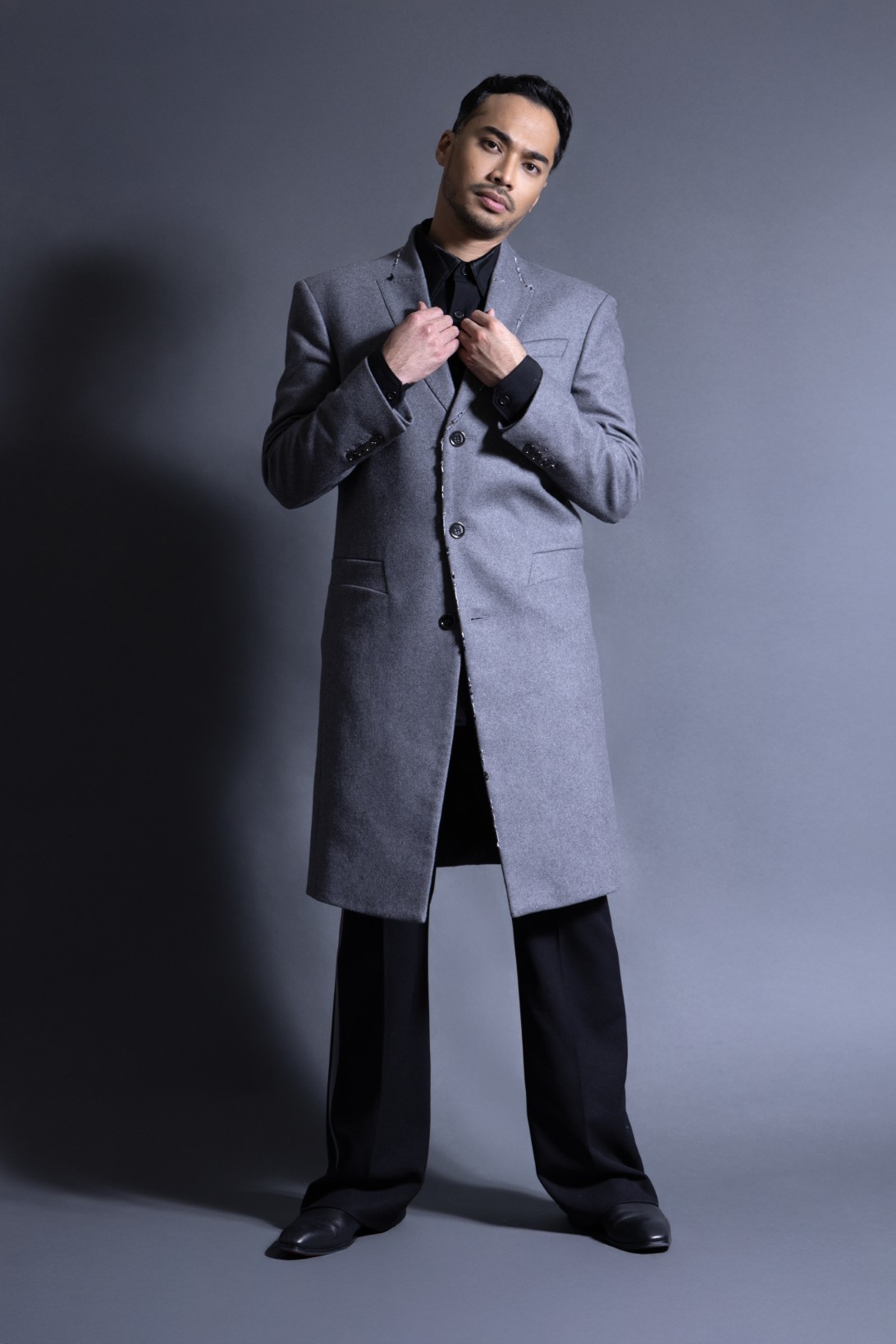
Black shirt and trousers: Wàngda
Some people argue we don’t live in an album era anymore. I personally disagree. What do you think?
I think we do. The artists that I most connect with are the ones who build their world. And I think the reason that you go back to an artist is because their world is unlike anyone else’s. That’s why you’re gonna go back. You’re not going back because of one song when you truly connect with an artist, and it’s life-changing, and it’s the kind of artist that allows you to maybe see something new about yourself or change your perspective. I think that, past even the music side of it, I think the artists I really admire are the ones that created this entire universe. All of these different things are happening. The album might be one part of it, but then they have this out-of-music experience. Whether it’s incorporating the film side with music videos and visuals on stage, with things that they do on the show. In that vein, I feel BAYO is my world that I’ve been building that really informs the music I release. And I think that to experience me fully as an artist and the people who truly understand the things I’ve been working on, they’ve been to the show because they see the physical embodiment of the show, and this union of all these different cultures and sounds. I think that it’s there’s just a lot of noise. That’s the thing. There’s just so much happening that a lot of people might say that albums are done, but nah. That is the vehicle for people to express themselves and artists to truly come into their own. So I agree with you.
What are some of your personal favourite albums?
There are a couple. I think Songs in the Key of Life [by Stevie Wonder] is really incredible from start to finish. It’s a beautiful project with a lot of moments that capture specific emotions. I think that’s an incredible one. In terms of every song being an absolute smash is Thriller [by Michael Jackson]. Every song is 10 out of 10.
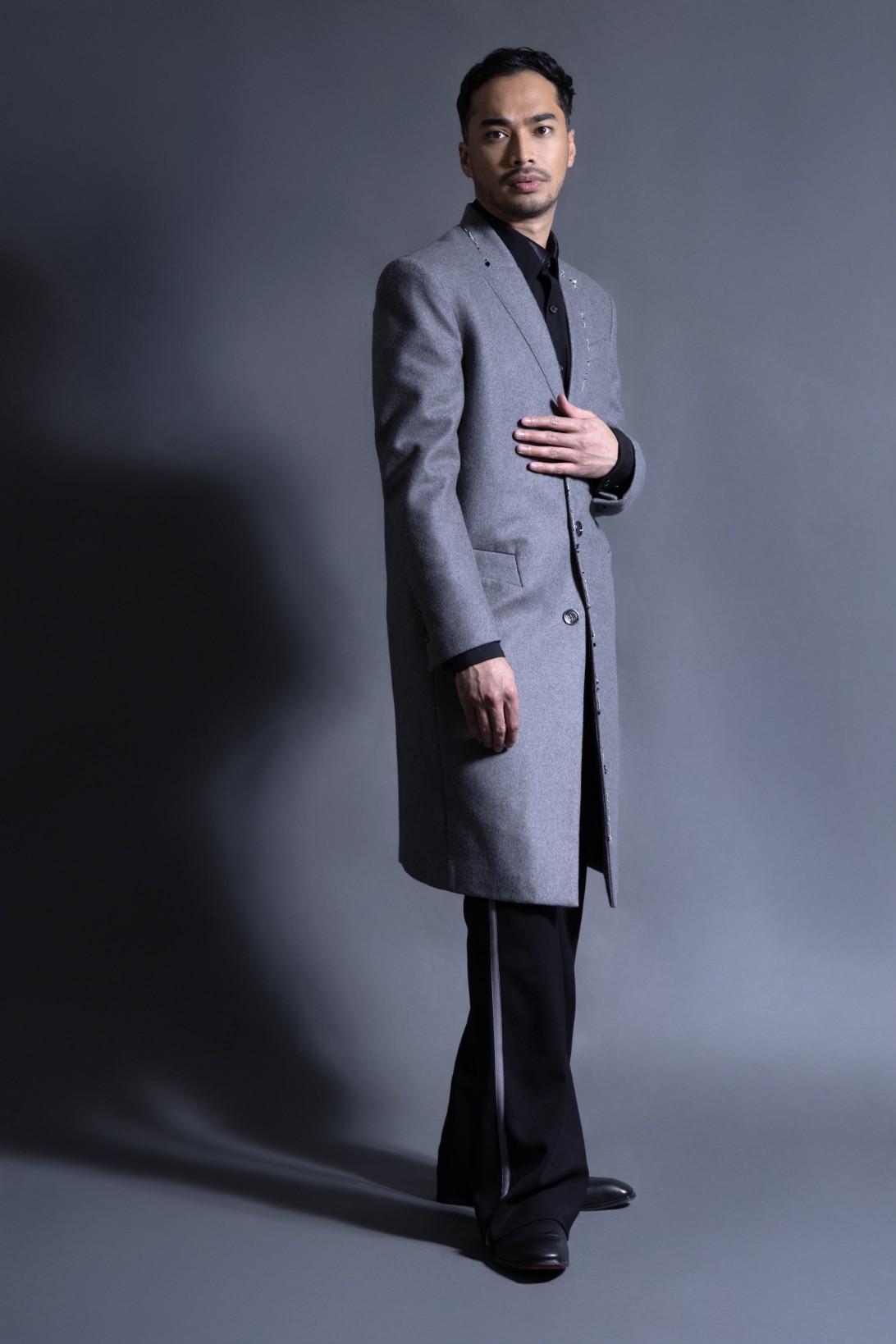
Over the years, you’ve worked with so many major artists. If anything were possible, what would you love to make happen next?
I’ve been starting to think about this again because I may have mentioned this in some other interviews, but legitimately, I had a list of my dream collaborators that I wrote out seven or eight years ago, and I worked with every single person on the list. I actually was able to work with all those different people, which was crazy. But I feel like now I’m in a space where I’m really thinking about it from a different perspective. I’ve been thinking about someone that I admire a lot, who I think has proven himself for over a decade and is an outstanding artist, and that’s Bruno Mars. And then probably Beyonce. I feel like between those two, I know they’re both massive, but looking at excellence in art and execution, to me, that’s really admirable as an artist to deliver every single time.
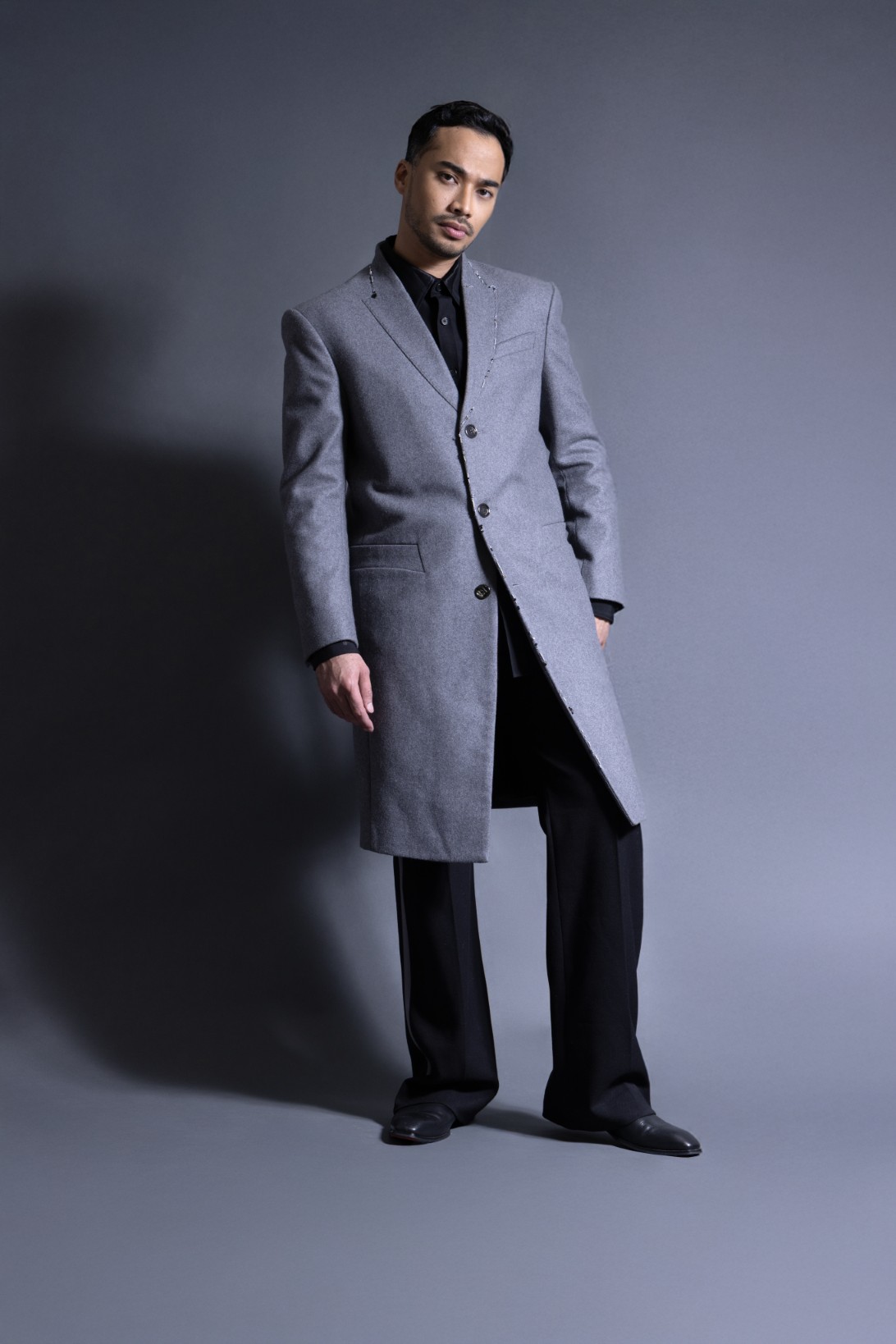
Since you work with artists from all over the world, what is something you look for in them when deciding to collaborate?
My process is connection. The first thing we do is speak, get a drink, talk, and have a genuine human connection. If that goes well and you have a conversation, it opens up all of the creative avenues. I feel like at this point in my life, I’m really lucky that I’ve had a chance to work with some of the best artists of today. It’s really great to see that so many of those artists are actually genuinely good people, too. They care about what they do. They work really hard, and they’re innovative. Sometimes, when an artist who already has a specific lane wants to do something, they don’t know how to translate it and do it in a different language. I feel like when I produced some stuff with J Balvin, when it’s on my project, with the perspective of Haitian music and connecting the world being the foundation, it’s about finding ways to incorporate people’s sounds into what I do and my culture and making them feel good and welcomed.
I read that you were a pre-med student and that your career goal initially was to be a paediatrician. Now you’re so far into your music career, and it’s gone incredibly well, do you ever look back and wonder how different things would be if you followed a different path?
Definitely. But at the same time, I also think, ‘What did I wanna do as a doctor?’ The reason I wanted to become a doctor was because I wanted to give back to my community. The core spirit of my life is that I’ve done everything possible to integrate giving back throughout my career. Whether that’s through fundraising and philanthropy, community building with the show and with my music, creating a different perspective for patients and the global consciousness, or creating positivity with my work. I feel like there’s a different scale with an artist’s life that allows you to reach so many people, and I’ve really tried my best to take those elements of the path of being a doctor and make them central as an artist.
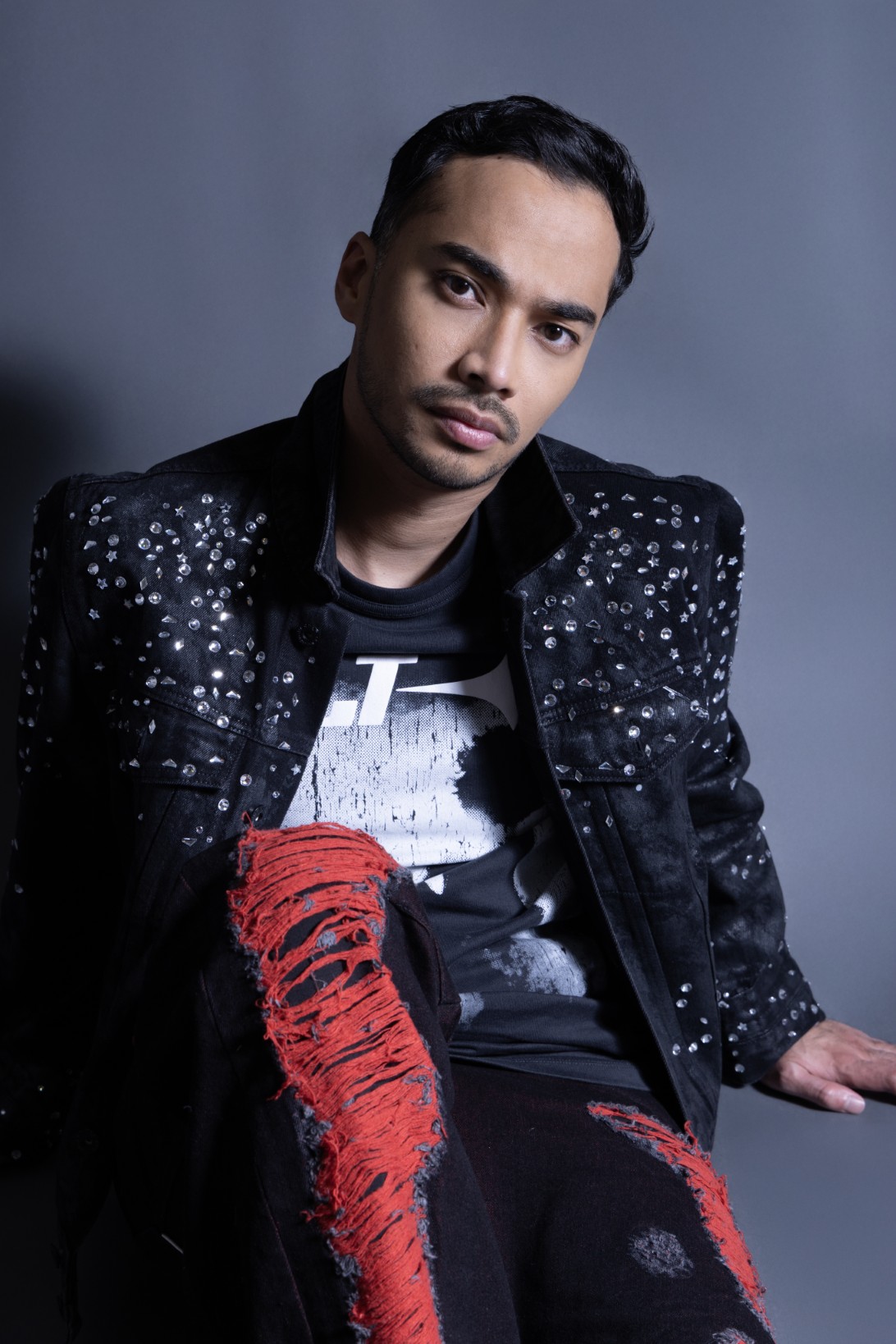
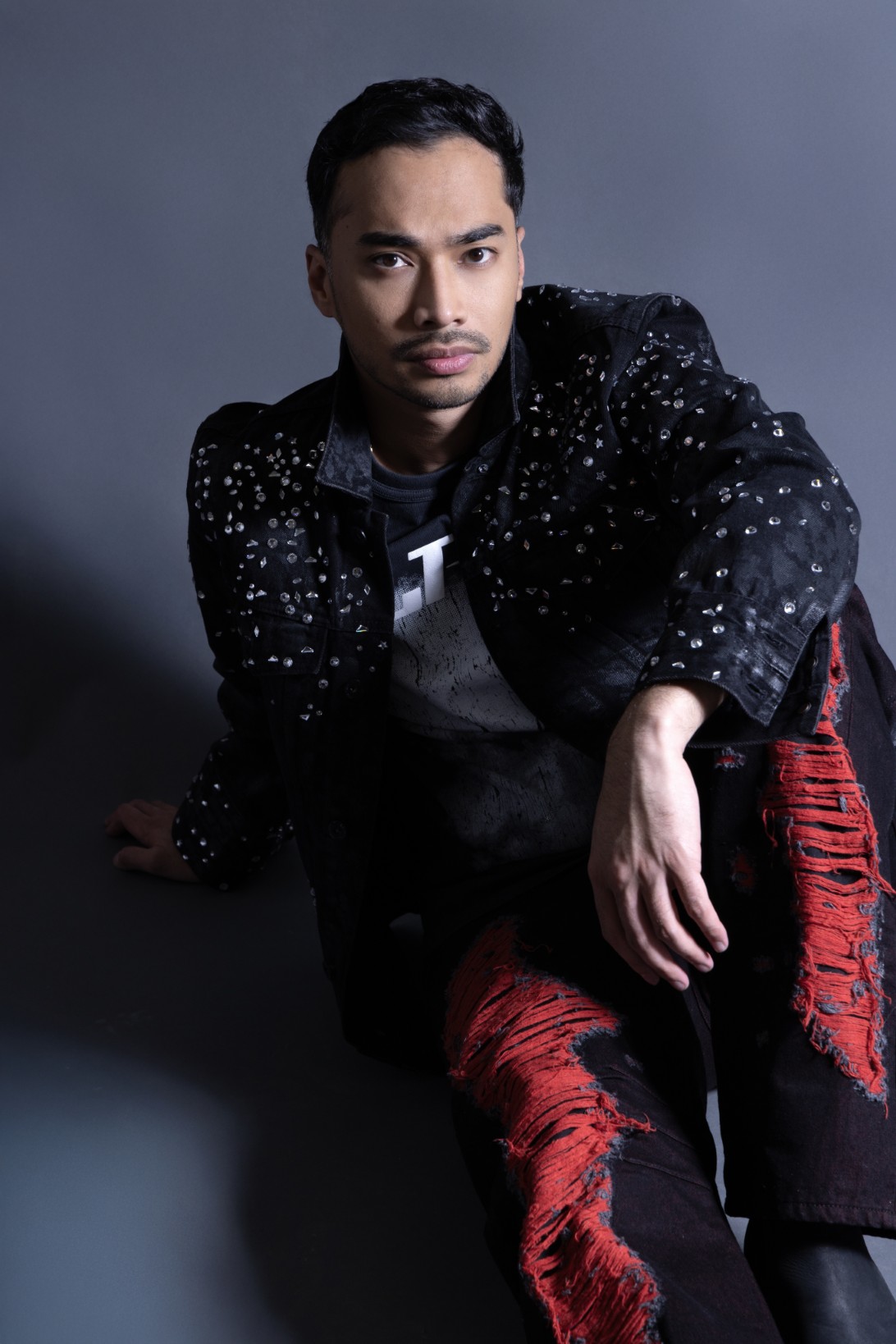
Black and red denim jeans: Hvman
Black leather Chelsea boots: Christian Louboutin
What’s the best piece of advice you’ve received that’s really stuck with you?
Oh, man. There’s a couple. I feel like I can’t even remember who told me this, but it was to just enjoy what you do, which I know is so hard these days to actually find the things that you love doing and being able to be present in it. And the crazy thing is, I don’t even mean that in a career sense. Like, you might have a job you don’t like. You could be doing things that you don’t enjoy doing. However, to find something that you do enjoy and actually be present in those moments is important. That frame of mind shift reminded me to be present and focused in the moment because a lot of the time, when you’re going through experiences, there’s a beginning and an end. And you won’t get that moment again. So when you’re in it, you have to do your best to be in the moment, enjoy it, and be present. That was really important for me to hear. Because for a lot of my life, I feel like I wasn’t necessarily in the moment and enjoying it, because so much stuff was happening constantly. A lot of amazing things happened, but I can’t even remember. I can’t even remember how I was feeling. And as soon as I changed that, it’s been much, much better. I’m happy to share that, and hopefully it can have a positive effect on whoever reads this.
Aside from the show in June, what other goals have you set for yourself this year?
I think I’ll continue to build everything that I’ve been working on. I feel it’s been a really amazing few years. I’m so grateful I’ve had a chance to see all these collaborations come out with different people and have moments that have been really successful and that have broken records in some cases. In other cases, being able to build something from scratch and see it reach this level and have this kind of impact on the community, I wanna keep doing that. I want consistency because I feel, even with the artists that I mentioned and the really impactful ones that I’d like to work with, they’re artists that have been around for a long time. I feel like it’s one thing to have success and fade, but it’s another thing to have success and maintain that and be able to really thrive in that way, where it’s longevity. What I hope is that I can prove the longevity of the things that I’m doing and that year over year, it becomes more impactful, more special, bigger, and reaches more people.
Michaël Brun, what is your FAULT?
Oh, probably eating sugar. I love food, and I would love to be more balanced when it comes to that. Although food is so good, you get to try something really delicious, balance and health are definitely important too.